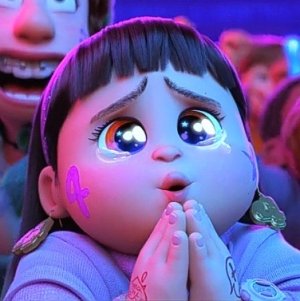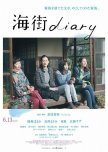
It's subtle but as with Koreeda, it's nothing new: it's about the little details and the little things. I say that Our Little Sister doesn't come as strong because it's less sentimental and it's less melodramatic. The conflict here is not as jarring as say, Nobody Knows or Like Father Like Son. That's one aspect that makes it seem directionless but if you look at it from another way, maybe that's the intention: not to have such a big conflict (the fact that the sister is another woman's is the central conflict) but to just tell a story. And one that's still touching. As someone who doesn't have a sister (I have two brothers and the middle child), I felt the bonds of sisterhood even just a little.
Koreeda trademarks are still present: music pacing (this time, not much piano), long shots showing the beauty of the setting hence, not much close-up and the little details (e.g. the umerashi). Though this time, we don't have young actors (save for Hirose Suzu who is around 17 years old when she filmed this), but the cast including Haruna Ayase, Kaho, Masami Nagasawa (who was also in I Wish) still delivers incredible performances. All three of them were nominated in Japan Academy Award for their performances.
I actually liked the contrast between the four sisters, Ayase plays the eldest, the mother figure, Nagasawa plays the carefree, stylish one, Kaho plays the oddball, happy-go-lucky and Suzu plays the quiet, simple one. It's such a treat to watch all these different personalities go together and interact. There is undeniable chemistry between the four.
Suzu (who won Breakthrough Star in Japan Academy Award), a current rising young star, whose two TV dramas I've seen, can act but sincerity lacks (like her eyes, it's shallow, it doesn't speak the emotions, you get what I mean? Some call her a deadeye actor but she can cry alright) although here because it's less melodramatic, her character fits her well, comparatively speaking. (But with more roles being given to her currently and working with talented actors, perhaps it's bound to change.)
As with Koreeda, lines are so natural and everything flows so well. The cinematography is so beautiful and the beauty of the countryside has been highlighted in the film. It also competed for Palme d'Or at Cannes 2015 (Suzu at Cannes at 17!!)
Our Little Sister isn't bad, I enjoyed it for its simplicity and beautiful visuals. But perhaps its unsentimental approach makes it a lackluster watch compared to other heavy Koreeda's dramas. Indeed, it doesn't have the feels but it has a calming effect as you watch: the setting helps, and the natural acting helps. It won't break your heart but it will touch your heart.
Was this review helpful to you?
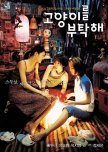
Each with defining personalities of their own also come to find their own places.
Yoo Tae-Hee (Doona Bae) is the peacemaker, I'm-not-ready-for-reality so she works for free at her family's business. But she longs for companionship and for connection, which she tries to find with from a poet with cerebral palsy whom she volunteers as a typist for.
Shin Hae-Joo is working as an office lady but without a proper degree. She seems to be dating but isn't really. A little bit full of herself, Hae-Joo longs to climb the social ladder; thus, settles for what she's thrown at.
The outcast, Seo Ji-Young is an orphan, living in a squatter with her grandparents and studying textiles—she longs for escape, to study in another country.
The cat, like these three girls, are adapting to changes—from being passed from owner to owner. Once a stray cat, it in a way, shows how they too, want to find their place somewhere.
Ultimately, the one who ends up taking care of the cat are the ones who have already found their place long before.
Take Care of My Cat is a subtle coming-of-age. It doesn't try to exaggerate nor does it try to be overly dramatic at its subject matter. There are times when it does hit the heartstrings but at times, it stays true to what it chooses to portray. If any, it's straightforward without being overly sentimental.
Was this review helpful to you?
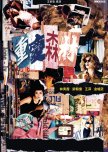
Written during the day and shot by night is impressive and makes the film an exciting one that adds to Kar-Wai's pool of Asian work. While not his opus, Chungking Express is fascinating on its own. It's a film that's not plot driven but rather pulled and told by jarring cinematography, takeaway-meals and serendipitous tales.
An exotic bright colors and cinematography that's a combination of cris-cross, fast-moving shots that seems like a huge powder of euphoria has been splashed all over the screen. It's not your-typical-romance. It's more about storytelling, dialogue and narrative that's shown through the visuals that allures you.
It's the shakey cameras, the close-ups and the movements that guide you as you want. It's cinematic freedom that speaks pure Kar-Wai style of emotionally resonating narrative, visual uniqueness and stylized touch.
This is a intertwining stories of two cops, both of which are getting over a heartbreak on their own ways yet are told in similar ways through the use of visuals and small references and even candid symbolism that reflect Kar-Wai's poetic storytelling. It's really the second story that shows more of Kar-Wai masterpiece with cinematic sequences, engaging dialogues and great contrast and after effects. It's the little details of slow-motions or Faye's dancing in no. 663's apartment that pulls the cinematographic storytelling forward.
As such Chungking Express just like Kar-Wai's films about love is showing that love-can't really be described. No words. Instead, he shows it through visuals and details and such. This makes the film pure, not romanticized and a alluring ode to Asian cinema.
Was this review helpful to you?
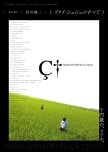
With such a long running time, it's difficult to wrap my head around what I feel about this film. It's also my first Shunji Iwai film (and it wouldn't be the last). Iwai, cinematographer, Noboru Shinoda and music director, Takeshi Kobayashi are able to beautifully portray something so brutal through the colors, the shots and the music. That's cruel. You see something so terrible happening in front of you but you're so mesmerized because it's done so beautifully. They romanticized teenage angst so well.
The plot is simple and it doesn't try too hard. The narration is easy to follow despite it not being linear...it makes you more intrigued to watch. But perhaps a problem lies with the plot's simplicity yet carries an almost riddle-like script writing with its overwrought and difficult-to-decipher black screen, white text repetitions. It's poetic but together it's words that don't make sense... generally to just normal watchers. (What is Lily's Ether????) It's trying to be philosophical in a coming-of-age film which in one hand, captures this change but at the same time, leaves you baffled and scratching your hand. There's just a lot of vagueness, a lot of interpretation (You decide the identity of those posting in the board too) of you to do that it creates a miscommunication between director and audience in the expense of telling his characters' stories.
We have an amazing pool of young characters that drive the story forward with Shugo Oshinari whom I think has the most interesting character. It seems like he underwent some kind of ephiphany (though not really in a good way) during a trip to Okinawa and just...changes. Just snaps. Kikeru - sudden fits of rage. It's interesting but at the same time the "why" isn't explored. Or maybe it doesn't matter. Maybe it's not the why but the what.
Hayato Ichihara is your typical wimpy loner that allows himself to be bullied. It's pathetic and not fun to watch. You don't feel bad but Ichihara plays his character like he doesn't want you to pity him...instead he wants you to slap him awake. I think that is engagement with the audience. For a film with such a simple plot and long running time, we need that.
And again, cinematography is just great. The colors are bright and crisp. The setting is in Ashikaga in the Tochigi Prefecture and the film captures the setting (not in the hussle and bustle of busy Tokyo) so well and it just perfectly wraps itself in the context of the film.
Most of the scenes are shot probably using a lightweight camera especially in the Okinawa scenes with shaky shots and hand-held shots. This is to establish a sense of connection with the audience...as if you're watching a home video. It's effective (and profanely beautiful) but it could be too much in a 160 minutes run. The music is superb, sang by fictional-idol Lily Chou-Chou (Salyu in real life) and it reflects the mystic and visual allure of the film.
I think that this film has some underlying social commentary to it. A film that's full of mystic and vague messages. Is it simply to show the extreme lengths of youth violence that is fueled by teenage angst which would cause bewilderment especially in a society such as Japan's? A society that boasts of politeness (highlighted in the film too), of social order, or discipline, of stability and of staying true to its norms and roots? Is there a place for rebellious teenagers? What about worshiping an idol to the point that you believe her songs exists even in the normal realms of reality? Idol-worshiping and virtual reality and to an extent, escapism are big things in Japanese society. Does the internet offer refuge from the horros of the reality especially in that kind of society?
Like one commentator said, "Lily Chou-chou is just human." Or is this film simply to show human life as what it is? Iwai's message is simple but it's up to you to decide what's your take on it.
Finally, if you're expecting a satisfying conclusion after watching so long. Don't. That too, is up to you. This film isn't for everyone. So if you can sit for 160 minutes and watch a romanticized story of teenage angst then this is for you. Or if you want to think about life...this might be for you too. In the end, it's the way the story was told through amazing visuals that got me. It's a powerful, haunting and honest coming-of-age film.
Was this review helpful to you?
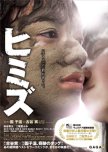
This film is not for everyone. If you're looking to be entertained, don't expect. It's an emotional roller coaster of a mindfuck, for the lack of a better word. It's a dark coming-of-age story. Not your wishy-washy type. It's just keeps driving down and down and down. (But does have a light at the end of the tunnel.) For a 2-hour feature of violence, madness and despair, it's an exhausting watch. One that drags on and on and on and you just want to put these characters out of their misery. But Sono captures these daily struggles with graphic scenes, staggering images and in-your-throat drama that sometimes seem to hyperbolic for your own taste. But effective in delivering the message.
It's a film about the youth. About brokenness. About a bleak future. Although it depicts a rather negative image of Japan and the burden of the youth to paint a future for the emotionally broken adults even if that future is bleak. This negativity is meant to allow viewers to reflect a broken system. Sono's symbolism, repetitive images, long cuts and foreshadowing makes for a masterful play on this rather dark and tragic tale. The music/soundtrack is playful. It's flirts with the cinematography and blends in so well. The low sounds echo that of the tragic story and the catastrophe left by the March 2011 incident. This is a tragedy. Even the bubbly, laughing Keiko (played by Fumi Nikaido) is also dragged into the hellhole.
Shota Sometani (husband of Academy Award Best Supporting Actress nominee, Rinko Kikuchi who is 10 years his senior) and Fumi Nikaido (both have also worked in other films together before and after this one; hence, the undeniable chemistry between the two) are versatile and experienced actors show why they deserve their Marcello Mastroianni Award. Sometani 's performance as a angst-ridden Sumida is a tour de force. It's difficult to believe he plays a 14-year-old character. It's sickening and pitiful as much as it's admirable to watch him. Despite keeping a stone face, it's acting that's not dead fish. The screaming, the mere falling down, the rolling in dirt, the crying in the rain, it's all delivered with such extreme clarity. Nikaido is amazing as well. But like what I said about her in "My Man", she has this innocence that's scary and I also feel that here. But she adds an edge to her acting, there is more tears and that actually complements Sometani's "zombie" character.
The underlying social commentary about a sickness prevalent in society is the film's most important giveaway.
It's the desire of youth, seen as the hope for the future to do good. Even if they can't do good for themselves, they'll do it for society because that's what we're expected to do right? Adults mess it up and we have to find ways to fix it. Adults run away and we have to solve it even if we ourselves also want to run away. That's what Sumida is truly running away from. That's why he wants to be ordinary. That's why he just wants to be normal.
I know this is not a romance but Sumida's bleakness is complemented by Keiko's optimstic nature even if her love is a masochistic, almost obessessive one, there's still a tinge of light in it as she pushes Sumida forward. A distorted version of a manic-pixie dreamgirl you could say.
But as such, it luads more instead, to be hopeful. As Sumida shouts, "Don't give up!" Have a dream!" Yes, it's portrayed tragically, the entirety of the film is but it also provides you a resolution at the end. Thus, this film being Dylan Storm's favorite (taking a line from it to justify his action) misses the take and point that it wants to deliver.
P.S. The recitation of Villon's "Ballade" of the characters is perfect. Of course, the whole poem isn't recited but it carries a meaning that the film has. It's even said by one of the characters. "I know everything but myself." For a film about loss, future and tragedy, it's difficult to find who you really are at the end of the day. Or if you ever will.
Was this review helpful to you?
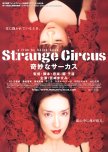
With themes dealing with incest, molestation, rape, depersonalization, mutation and transexuality, Sono takes you to a dark and disturbing journey. An unforgettable one. I've always seen Sono's works as ambiguous, weird and bizarre. Strange Circus might have just brought that to another level, rivaling even that of Takeshi Miike's standards.
This film deals a lot with the deconstruction of collectivism which really is a trait of Japanese society compared to the more individualistic trait of western society. You destroy one, you destroy the other. You create one, you take the other. The use of a traditional family (father, mother and child) is an example of that. Their home, one that looks more Western also shows that.
And Sono deconstructs family here, ultimately, to find individual identity for the characters. It's not an entertaining film. It's poetic in the most disturbing and weird way. There's a lot of metaphors, a lot of dark and bloody visuals. The white walls symbolizing innocence and purity is tainted with the horrors that unfold. And that last scene. So much symbolism. Anyone would think it's weird. But it actually meant a lot (and a satisfying close too) to the film's overall story.
Ultimately, the very ambiguous ending and non-linear storytelling tests the audience. Presenting you a disturbing way to tell a story, it asks if you indeed, as a viewer, were paying attention. Can you tell what's real or not? Sono takes you in, tries to make you think you understand it, only to stab you in the back with a plot twist that makes you question your own judgement. That part reminded me so much of Satoshi Kon's Perfect Blue. That psychological mindfuck.
Perhaps, the only problem that I have is the ambiguity of the story seems like it's going no where. The story itself doesn't have a goal, at least it wasn't established until the last 40-30 minutes of the film. You, the audience have a goal which is to figure out what the heck is happening. And if you don't know what's happening because of the huge ambiguity, that's a problem too.
Was I disturbed? You bet I was. But it's not because of the blood and gore. I was much more disturbed watching Miike's Audition. But the themes here are ones that will put a lot of people off. The rather surprising (and at the same time) cliche plot twist as well. It's a film that's a lot to take in, it's not enjoyable. But the masterful storytelling is one to applaud this film for.
Was this review helpful to you?
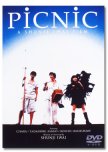
Iwai's portrayal of mental illness is not wishy-washy nor is it romanticized. Instead, he gives us something real. These characters speak with the desire to be understood. Often, their words carry more than one meaning -- one that many misunderstand. When Satoru says, "Save me" while being strangled by blankets left to dry, he meant 1) literally save me 2) save me from this world and from myself. These little details are so nice and appreciated.
Picnic is a simple tale. With just an hour running time, Iwai embraces the cinematography with such beautiful visuals and light soundtrack, it tugs at your heartstrings. Despite being confined to wall within the walls, you feel like you are also exploring the world with the three main characters. Their stories are disturbing but that's precisely what makes it feel real. Carrying a picnic basket while watching the end of the world is such a simple act, it makes the "end of the world" feel as if it's just an every day thing.
While the theme of religion play here, I don't think Iwai is preaching. Instead, he gives the message that our life is dictated by us as much as we believe in God or not.
The final scene, black feathers contrast with the pink/yellow sun as it's about to set is so beautiful I will remember it forever.
Was this review helpful to you?
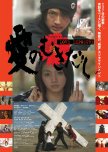
4 hours didn't feel like 4 hours at all. In fact, it made my 11 hours flight seem...so short. To summarize what Love Exposure is is difficult. But that's very Sion Sono-like anyway. He's an auter that way. I enjoyed Love Exposure because it was different, because it was refreshing. It's a combination of all these things that normally don't fit well together but Sono does just that -- very Sono-like again. You have religion in one area and then sexuality on the other. You have panty shots on one hand and blood on the other. You have sinning in one hand and confession on the other. They're not things that go hand in hand yet Sono makes a perfect combination out of them.
I don't know what Love Exposure wanted me to get out of it. But it doesn't matter. In fact, I think Sono doesn't even want to make you think too hard. You're not suppose to undergo some epiphany just because of it. It's just a mash-up of different things that keeps you entertained and also think but not to the point of overanalyzing -- much like Sono's other works anyway. Sono doesn't try to hard to insert things, he shows it to you.
The divisions of 4 chapters was cleverly done and balanced well enough. There are loads of characters but each of them are given their own screen time that it doesn't seem so lopsided. It's 4 hours alright, but I felt like everything mattered and needed to be there...no matter how bizarre and weird they seem.
Truly, it's a romantic comedy that isn't subtly one. Above all, I think it aims to reflect the whole parent vs. child conflict of how parents carve their children into their own ideals, ultimately abandoning who they truly are in the process. It's about bad parents raising "bad" kids. But mostly, it's about how love, above all, conquers. At the end of the day, you lose your memories, you fell out of the line...but love it could save you.
Great soundtrack, exciting, funny, amazing cast and acting and most of all entertaining without trying too hard. 4 hours? It'll pass by so fast you won't even notice it.
Was this review helpful to you?
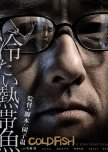
He opens the film with fast cuts paired with marching music that immediately sets the tone and the setting. The plot develops not through the revelations (the cliche way) but through dialogues, action and small details wrapped around in one perfect blanket. The clever way of using music that contradicts the scene is very Sono style but nevertheless, effective in bringing out the scene.
Dark, gray tones dominate the film with lots of red. Still, tropes like the typical-weak-salary man is still played and stretched towards the end that somehow makes the film repetitive. And with a 140 minutes running time, it's too long for a crime-thriller drama of this sort. The pacing is just too long, the narrative too dragging that at times, you just want to get to the excitement (and they aren't many). Expect blood and guts but don't expect excitement. Expect weirdness and undermined representations of women but don't expect excitement.
I'd praise the actors for their excellent portrayal though. Veteran actor, Denden plays the energetic-everyone's-uncle role so well mixed with humor and sadistic tendencies. Asuka Kurosawa (whom I've seen play a similar role in The World of Kanako) plays the seductive wife well and Mitsuru Fukikoshi plays the pathetic average man so well and that transformation at the end. Silent but deadly. He played it well.
It's more disturbing that the film is loosely based on the "Saitama murder of dog lovers" as you watch the film and have that in mind (though Sono makes a point that it's based on a true story in the beginning), it helps to establish the "credibility" and "sincerity" of what you're actually watching rather than just a make-believe murder tale because murder can be overrated.
Was this review helpful to you?

If you're looking for entertainment at face value then Why Don't You Play in Hell is for you, compared with Sono's other psychological films like Himizu or epic, Love Exposure. WDPH is full of pleasure. It's an action-comedy guerrilla style, sometimes a teenage love story, sometimes a violent off-with-the-head shot or sometimes just...whatever. And that's totally okay. If it doesn't make sense, if it can't be explained, that's okay. WDPH is just that. It's a mish-mash of things that's suppose to be entertaining for everyone. Action, comedy, love story, friendship..yada, yada.
I especially love how all the sub-plots and story line just come in together and blend in towards the later part of the film. First, a yazuka story. Then, a rebellious young adult who meets a man that has loved her...for 10 year after seeing her in a commercial. Then an amateur-yet-passionate film crew that just wants to make the movie of the century. And all these story lines come in because of one thing: film. And here you are, watching a film too. Film-ception?
Everyone here is great. Angry, sad, crazy, all these emotions portrayed by the actors were great. Some of them I'm seeing the first time on screen. Everyone has such good chemistry, you can't really hate anyone...even with all the killing and blood. It's just so hilarious how Sono combines all the blood with comedy, all the killing and still make it feel so...light and heavy at the same time. The thing is, as you watch, you're always in for a surprise. You'll never know what to expect because of this mish-mash and unorthodox style. That's what's going to keep you hanging.
A slight comment on Fumi Nikaido. This is the third film that I've seen her in and yet again, she proves how much of a versatile actress (who got nominated for her performance here in the Asian Film Awards) she is. Heavy drama in Himizu, forbidden love in My Man and now a rebellious fighter. But she still keeps her signature acting that I totally love: that secrecy in her eyes that actually makes her scary (and very fun to watch).
Cinematography, sound and mere 35mm comparisons to digital is tackled and very much in sync with the overall film. If I can describe WDYPH, it's creatively entertaining. This is probably Sono's ode to Asian cinema and proves just how much amazing it can be.
Was this review helpful to you?
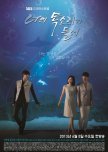
It really is simple. Yet as you know with Korean dramas, the plot can never really just stayed simple. So as it progresses, it digs deeper. And effectively at that. I love how the series starts off smoothly, already presenting the plot and its backstory by Hye-song's storytelling during her public defender's interview. This to me, was a great way to introduce everything because we didn't have to go through a painful full-on flashback but rather telling it in a way that contributes both to the present happening and the establishment of what happened back then. It, in a way, also created suspense. And it also made me, as a viewer, connect the dots myself.
I really really do love how I Hear Your Voice made a great connection with all its character. One way or another, each character is affiliated with another. And even if it's just a little, it's central or it contributes to the plot. This connection is really cohesive, concise and very tight. Of course, it may not be perfect but it makes sense and upon discovery, it makes it much more exciting. Hye-song's past is connected to Soo-ha's and Joon-gook. Hye-song is also connected to Do-yeon, Do-yeon is connected to Dal-joong's. Lawyer Cha is connected to Lawyer Shin's in the past and that's only a minor detail yet it's great because it establishes the present relationship of the characters and the chemistry between all of them.
Now, I do love the flow of the story. The connection with the past to the present is strong and has always been reinforced. I liked the time span of the story as well. However, I wasn't really a fan of the time skip (the one year gap). I'm not a fan of time skips in general. To me, it always feel like there's something missing even if it does get mentioned or solved in the future, I want to see everything for myself. And that's exactly what I felt especially with what happened to Soo-ha. But I did like how the story played out. I think the drama's court and law elements is really a great treat for me, I've learnt a lot and my interest in law just intensified. But those elements itself really helped a lot with how the twists have turned out, it allows engagement with the audience to help in figuring out together with the lawyer. To some extent, it addresses what it means to be a lawyer and a public defender especially (even a prosecutor or a judge). There's a lot of value conflict and morals as well as surprising plot devices that you do not see coming. It's a mixture of comedy, romance, drama and even thriller and mystery.
But, I'm sad with how the series failed to really address its biggest plot device: Soo-ha's mind-reading. Given that everything in the plot is in touch with reality, his supernatural ability is in isolation. So it has to be addressed. Like, how? And why him? I'm sure it's not just some random decision to have that ability. It's true that it's very crucial and helpful to the plot and the characters, so for something so important to have no background at all really doesn't sit well with me.
The Characters:
This drama provides me with a deep set of characters that have their own individual characteristics which were explored. The thing is, every character that is in the drama had their roles and they needed to be there no matter how small that role is. Every character compliments one another, every interaction has chemistry even between the antagonist and the protagonist. You see, Min Joon Gook is not the meanest of the meanest but of course he, too is horrible. However, that cruelty is justified, not accepted but at least there are reasons for the way he is. This in a way, makes us as an audience understand his character despite being the villain.
His character compliments Park So Haa's and brings out the "beast" within him. There is great chemistry, I'm telling you. Even between Park So Haa and the two policemen. Every interaction feels like a crucial factor. You can basically come up with a ship for all these characters, they just have a great atmosphere together. One of my favorite is between Hye Song and Prosecutor Seo. It's such a bittersweet friendship. Like these two go way back and have such a long history together (an unpleasant one at that) and they're bickering towards each other is as much fun as how they try to hide their care for each other. It's such an interesting friendship. The subplot for Prosecutor Seo is also great, not only did it give her character depth and development but it also tied in the connections between the characters that no one is left out.
The Romance:
I get it. Lee Jong Suk has great chemistry with anyone. Be it a male or a female. (Okay, maybe I'm being a bit biased because I love Jong-suk but still) I know that age doesn't matter. I know that Park So Haa and Jang Hye Song are wonderful together and I ship them. Though, this tandem is not a romance for all. It has its audience. It appeals to some, it's weird to some. Some would not sit well with their almost 10 years gap. Some wouldn't care at all. That's just what I would say about it as a whole.
But as for me, this romance is not exactly 100% forbidden. There is a tendency to be. But it just depends on your own personal taste. I think that this romance is meant-to-be. It's much more fated than Cheon Song-Yi's and Do Min-Joon's in My Love From Another Star or at least it seemed much more like fate with how their story was presented. The connection, the history and all that are much more cohesive and united. Not to mention that yes, despite the fact that they can seem like brother-sister or pass on as a mere admiration, there is a stronger chemistry with these two. Of course, it is similar in some way to Song-Yi's and Min-Joon's, So Haa is more like the older and mature one of the two, the protector but that itself is great because it shows that differences can bring out the best and change in people. All I can say is, Lee Jong Suk is such a bae.
The Themes:
Do not live with hatred and revenge. Hate is heavy. Revenge can make you a monster. But you have the choice not to be a beast. You have the choice not to be slave to your past. As a whole, that's the drama's main focus. But to some extent, it also focuses on the value conflicts of lawyers. What is moral or immoral? Will you defend someone even if you think they commit a crime? Would you actually have to care about that or just do your job? It deals with a lot of themes regarding the past and regrets and it presents it well despite the tangled lives of its characters.
As much as I love the series, it doesn't shy away from the ever-so-cliche, alone and loneliness theme. Though it doesn't heavily focus on that, it does at some point become Min Jook Goon's driving force or at least contributed to it in some way.
Was this review helpful to you?
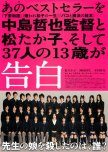
This review may contain spoilers
Well, it made the final shortlist in the Best Foreign Film category of the 83rd Academy Awards for a reason. From Kamikaze Girls and The World of Kanako director, Tetsuya Nakashima, Confessions is considered his opus. And with good reasons. This is based on the thriller novel by Kanae Minato.With a strong 20 minutes opening monologue, Confession quickly establishes itself. It sets up the scene, introduces characters and creates conflict within 20 minutes with elaborate control and pristine intrigue. It's not perfect. It's not as detailed or as convincing especially actions coming from mere junior high school students but it enters a new type of fascination as a viewer. While the immoral practices presented in the film will make you question, it delivers the shock factor it needs. Perhaps the reason why it chooses that age group as its major protagonist (or should I say, antiheroes).
Confessions is a revenge thriller that is cleverly wrapped into a psychological film. Yes, the actions will cause shock (perhaps not even for the lighthearted) but it's the mental manipulation, the monotone, the poker face and the polite words that Moriguchi (played by Takako Matsu) that makes everything a perfect blow, up until the end, almost pulling a perfect Chekhov's gun.
While the intertwining confessions benefit viewers in giving a different perspective and a two-side of the story narration, it suffers from inconsistency especially in terms of clarity and length. Given the context of the story though, it makes you question how plausible the writing is. You can applaud Moriguchi's clever plotting but you question just how much, especially having junior high school kids here, how of much of what happens makes sense...in reality (being vague to avoid spoilers).
A contrast in terms of style with Nakashima's The World of Kanako which incorporates fast cuts and heightened overtones, Confessions is slow, filled with slow motions that adds dramatic effect but renders the stab to the heart effect. Irony and contrast is a recurring theme. Lots of irony. Contrast in overall cinematography with dark colors against white background reflect the melo-dramatic feel, sometimes emo ballad curled in psychological mindfuck that the film tries to take. Lots of dark gray tones creating a gloomy ambiance. Contrast with English music with ironic lyrics and dramatic scenes make the scenes stand out.
Ai Hashimoto, often called as an acting prodigy because of the massive pool of films under her belt at the age of 20 puts on her signature smug look that shows a character filled with secrecy. Yukito Nishii executes his character well, playing an innocent genius with dark secrets. His actions surprised me and I least expected that. He has great chemistry onscreen with Hashimoto. It's probably mean to say but Kaoru Fujiwara fits the stereotypical wimpy loner look which makes his acting effective and his eventual collapse all the more heartbreaking.
Overall, Confessions is not a perfect film but the acclaim it gets is the way it handles the psychological factors it imposes on its viewers. It tries to ask you teach you a lesson about life, but actually you don't need that lesson. That's a red herring in the film. Everything it "tries" to tell you, you already know. And I think the film is just showing these underlying "lessons" out in the open using young teenagers for elaborated effect. It's not a film about evil per say but the little hidden dark side in all of us. But I'm just glad that it wasn't the least bit romanticized.
Was this review helpful to you?
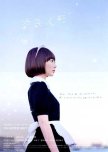
Air Doll doesn't try to be too hard. It doesn't wallow you into questioning your existence or does it try to be sentimental. Instead, it gives you a different view on life -- from someone who is trying to understanding it and "living" it for the first time. It is interesting to see what Nozomi discovers as she begins her life. She sees the good, the beauty, the fun but also the sadness, the ugliness and the pain -- which essentially what life is.
Doona Bae is truly an absolute bae. Her eyes alone act. Her eyes alone shine. Not only does she look like a doll but she looks brings life to it, just like her character. The fact that she delivers all her lines in Japanese (despite being Korean and I don't know the extent of her fluency) impressed me. The slow yet precise delivery reflects her character's discovery with communication, language and the world. It is perfect.
Air Doll has a more urban setting but doesn't mean that we get to cramped, suffocating skyscrapers. We still see small apartments and low-rise buildings which to me, always feels much more simpler and compliments the film's overall tone. Once again, the colors are nostalgic as much as they evoke a sense of calmness. It's visually colorful but not a shark vibrancy. I'm in love with the soundtrack. Just the way that the sound soothes you as you watch Nozomi discover life's meaning is so satisfying.
Finally, Koreeda's attention to details never ever fails to impress me. You'd never think that simple words such as "I'm off!" would have so much significant, that a mere "birthday" would mean so much or that a "plug" would symbolize something so much. There are (side) characters that others might find unnecessary but I find their presence vital because they highlight the different ways that people live, that people are which is essential in the film's message.
Once again, Hirokazu Koreeda depicts a simple story with such power.
Was this review helpful to you?
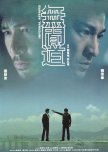
Leung and Lau are great contrasts to each other but at the same time, also compliments each other. With Lau's charismatic face, he delivers his character with such decency all the while keeping a dark secret. Leung on the other hand, has always been a playful character (he has played a policeman in Chungking Express too!) and his presence on screen is just really nice to watch.
Some say that Martin Scorsese's The Departed is a more "soulless" adaptation of Infernal Affairs but I can't say since I haven't seen the former. But the fact that it is a remake of the latter is enough of a statement to say it's good. I just hope those who watched the former know that it's based of on the latter (I mean with a cast like Dicarpio and Damon, it's difficult not to forget).
Infernal Affairs is intense, gritting and an exciting film to watch. The fact that you have a mole in the mafia and the mole in the police and it's a race against time to figure out the two is already enough to make something worth watching. Living in Hong Kong (and sometimes even taking it for granted), the cinematography of the city here is amazing. There is as much vibrancy as there is much darkness that embodies the two main characters as well.
The action isn't your-head-over-heels action compared to Western films but there's still that edge-of-your-seat feeling. So much dramatic tension and suspense especially on which mole will be figured out first.
Absolutely love that build-up before Eric Tsang (whom I know more as a comedian to be honest so his role here is a refresher for me too and he delivered it well) smashed Tony Leung's cast on the table -- I was surprised. It was too good of a scene. Add that up with music that gives you such adrenaline, you won't be able to take your eye off the screen. And that build-up up the way to the finale -- just brilliantly done. So many scenes that just gives you mini heart attacks.
I couldn't ask for a better ending as well.
I always saw Hong Kong crime thrillers as cheap and ambitious but that's a blind opinion since I haven't seen one before (except for some Jackie Chan classics which I'm not even sure counts as crime thriller) and then came Infernal Affairs. I take it back, Hong Kong crime thrillers are great.
Was this review helpful to you?
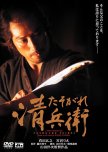
Two hours did not feel like two hours. It's slow-paced but it's not the kind that drags on into unnecessary details. It's also not the metaphorical tale that other try to be, the story is straightforward, simple yet there's also something so enthralling about it. You'd want to see Seibi's character and how he'd go about his life as a petty samurai with two young daughters and a senile mother to look after. He's portrayed in a pitiful way but not in the way that makes you feel sad for him but at the same time, makes you root for him. He's neither depicted as likable or unlikable, just the way he is. Raw and real.
I definitely loved the aesthetics of this film. It's set in mid-19th century Japan and everything about it feels like that -- even the Japanese that they use. I guess it's the dialect (?) but it does give off a very historical feel even the way the characters act down to the little details of the clothes, hair and such. But the colors aren't crisp that it evokes a nostalgic and dramatic feel that echoes the overall tone of the film. It's a tale of mundane life that's amplified but still concise.
Hiroki Koreeda cites his style as more of Yamada to which this having my first Yamada film, I can finally see now. The attention to details, the simplicity and the subtle dramatic tension makes the film all more beautiful. Seibei and Tomoe's formal courtship is filled with dramatic tension -- just perfect for its time. While the lone "action scene" is stretched to the last 30 minutes or so, Yamada tries to keep us at the edge of our seats as the two characters (hero and villain) talk things out before launching into battle mode, only to force us to take deep breathes as he suddenly lunges at us.
All in all, The Twilight Samurai is ultimately about family. And while a mundane tale, Seibei and the narrator (the daughter's) words make it a poetic, almost poignant one.
Was this review helpful to you?

